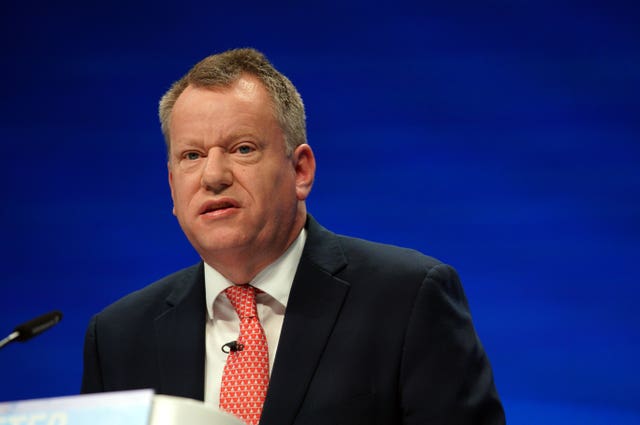EU to table ‘far-reaching proposals’ on Northern Ireland Protocol next week
European Commission vice president Maros Sefcovic has called for both sides to come to a ‘reasonable solution’ by the end of the year.

The EU is preparing to table new proposals on the Northern Ireland Protocol by the “middle of next week”, Maros Sefcovic has said.
The European Commission vice-president said he hopes to brief the UK Government on the “very far-reaching” proposals within the next fortnight, before intensive discussions throughout the rest October and November.
The proposals will focus on animal checks (SPS), customs, medicine supplies and providing a voice for Northern Irish representatives in the EU.
Mr Sefcovic told a virtual meeting in Dublin: “What we are discussing right now where we would like to put the final touches hopefully by the by the middle of next week.
“It’s a very simple proposal but from our perspective these would be really, I would say, very far-reaching proposals.
“I sincerely hope that it will be seen as such by our UK counterparts and they engage constructively in our discussion, because I think we have to move from the tough political rhetoric, from the threats we hear all the time, down to the business that actually solves the problems.”
He added: ” “I think it is the best interest of both of us that we will try to find a reasonable solution before the end of the year, early next year.”
Mr Sefcovic said there was a “political risk” attached to the proposals, if the UK Government were to accept them and then proceed with its threats to take what is seen to be the “nuclear option” of triggering Article 16 of the protocol.
This option was mooted by Brexit negotiator Lord David Frost at the Conservative party conference this week.
Such a move would effectively tear up parts of the deal to avoid a hard border with Ireland, which was negotiated with the EU last December.

“These threats are definitely not helping” he told the Irish Institute of European Affairs (IIEA).
“We want simply to make sure that from our side, we will demonstrate to the people of Northern Ireland, to the people of Ireland that we in the European Commission are willing to do everything possible within the framework which is agreed and ratified, to solve the practical issues on the table.
“We want Northern Ireland to benefit from the access to the biggest trading block in the world. We want to make sure that there will be no hard border.”
He added: “The protocol is not the problem. On the contrary, it is the only solution we have.
“Failing to apply it will not make problems disappear, but simply take away the tools to solve them.”
Mr Sefcovic said the EU’s proposals would not be “take it or leave it”.
“I hope that we will avoid it, because we are approaching this from the beginning in a good place.
“We are absolutely convinced that these proposals are addressing the practical problems and issues which have been raised by stakeholders and representatives of different sectors and different communities in Northern Ireland.”
Mr Sefcovic also ruled out removing the role of the European Court of Justice in overseeing the implementation of the protocol.
He said: “If we are talking about the constructive solutions to the to the practical problems, I think that doing away with the European Court of Justice is not one of them.
“To be quite honest, I find it hard to see how Northern Ireland would stay or would keep access to the single market without oversight of the European Court of Justice.
“Do we want to deprive the people of Northern Ireland of this tremendous opportunity, this huge advantage? Do we want to do that?
“That’s the best answer I can give you it at this stage, so let’s think very, very carefully.
“What we are putting on the table and what kind of price tag this might have for the businesses and for the people in Northern Ireland.”





